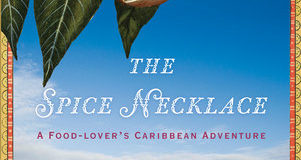Share
Meeru Dhalwala and Vikram Vij: Authors of shortlisted title "Vij's at Home: Relax, Honey"
Meeru Dhalwala and Vikram Vij are the authors of Vij’s at Home: Relax Honey, which was short-listed in the English Cookbook Category.
Meeru Dhalwala was born in India, and grew up in Washington, DC, where she worked with various international non-profit organizations on human rights and economic development projects. Upon moving to Vancouver to join Vikram in 1995, she quickly took over the menu and has been creating new recipes ever since. Meeru continues to work closely with her all-female kitchen staff—all of whom hail from villages in the Punjab—to experiment with various cooking techniques and spice combinations. Meeru’s particular interest and focus at Vij’s and Rangoli is to forge business relationships with other local businesses and farmers. She is committed to improving her business environmental footprint.
Vikram Vij was born in India and grew up in Amritsar and Mumbai. He studied hotel management in Salzburg, Austria, before moving to Canada to work at the Banff Springs Hotel. He opened the original 14-seat Vij’s Restaurant in Vancouver in 1994. In early 1995, his wife, Meeru Dhalwala, joined him. In 2002, Vikram and Meeru opened up a second restaurant and market called Rangoli. Together they manage a staff of over 70 employees. Vikram is a certified Sommelier and is passionate about encouraging people to enjoy wine as they do food, and to engage in learning about the growing of grapes and the production of wine as they would any other food source.
Answers provided by Meeru Dhalwala:
What was the inspiration for Vij’s at Home?
I was actually lacking a defined inspiration for Relax, Honey for a long time. Just because we both had recipes didn’t mean I had a fun and meaningful format in which to present them. Finally, my inspiration hit in the form of an ongoing argument between me and Vikram and fixing this argument by going out and buying a dining table and making a dining room in our house after over 10 years of not having one. The inspiration was this: my marriage and family is no different from anyone else’s with our bickering and our joys — even if the bickering and joys of our family was comprised of two professional chefs who have food a big part of their home life. My dining table suddenly connected me to the public at large, as if I were now part of an important club.
What was the biggest challenge you faced when publishing/writing this book?
We didn’t want a part 2 Vij’s cookbook, but we wanted a continuation of our intertwined professional and personal lives in a new dialogue. The second cookbook wasn’t meant to impress but to encourage and to relate. My challenge was to write as if I were talking to the cook/reader as my neighbour and/or friend versus as a customer who pays to be wowed by our restaurant food. Well, I knew I wanted to write my dialogue in that casual way, but I didn’t want it to read as if I were trying too hard. I wanted to encourage the reader from far away in the same way I encourage another parent at my kids’ school — the way other parents encourage me to give vegetable gardening a try.
What aspect of the book are you most proud?
I feel it in my heart that I succeeded in achieving the dialogue with our reader and that I was able to relay my family’s true food culture at home. The last thing Vikram and I wanted was a cookbook that implicitly or explicitly says: “Look how smugly food hip we are.” The other challenge was to figure out a way to have photographs of my daughters without them being overly exposed.
What do you wish you knew before you started this project?
We did all the food photography at our home, in our kitchen and dining room. It only made sense. But I didn’t realize how much stuff would be all over the place in my house for long periods of time and how much work it would actually be in terms of clean up! It was worth it, but next time I’ll be better organized. For the first cookbook, we did all the photographs at the restaurant with our kitchen and staff readily available to help out.
What advice would you give aspiring culinary authors?
The dialogue and ambiance of your writing, and the potential relationship that dialogue creates between you and the reader is crucial in terms encouraging people to cook and relate to your recipes. The dialogue is what frames your recipes for success. So work hard on expressing your feelings as much as you would on the actual recipe. But you have to get a balance so that you don’t overdo this dialogue. I was sure to include “relax, honey” in the title because I do think we all need to relax more, including when we write.



